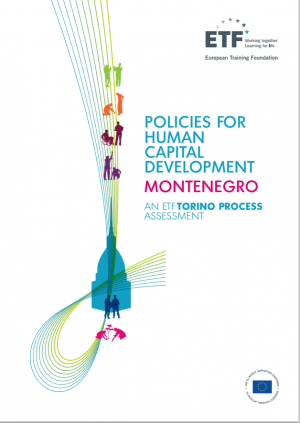The European Training Foundation (ETF) assessment provides an external, forward-looking analysis of the country's human capital development issues and vocational education and training (VET) policy responses in a lifelong learning perspective. It identifies challenges related to education and training policy and practice that hinder the development and use of human capital. It takes stock of these challenges and puts forward recommendations on possible solutions to address them.
These assessments are a key deliverable of the Torino Process, an initiative launched by the ETF in 2010 aimed at providing a periodic review of VET systems and policies in the wider context of human capital development and inclusive economic growth. In providing a high-quality assessment of VET policy from a lifelong learning perspective, the process builds on four key principles: ownership, participation, holistic and evidence-based analysis.
For the ETF, human capital development is the provision of support to countries for the creation of lifelong learning systems that provide opportunities and incentives for people to develop their skills, competences, knowledge and attitudes throughout their lives for the sake of employment and realisation of their potential, and as a contribution to prosperous, innovative and inclusive societies.
The purpose of the assessments is to provide a reliable source of information for planning and monitoring national education and training policies for human capital development, as well as for programming and policy dialogue in support of these policies by the European Union and other donors.
The ETF assessments rely on evidence from the countries collected through a standardised reporting template (National Reporting Framework) and a participatory process involving a wide variety of actors with a high degree of ownership by the country. The findings and recommendations of the ETF assessment have been shared and discussed with national authorities and beneficiaries. However, the ETF takes full responsibility for the content of the assessment.
This assessment report starts with a brief description of Montenegro's socioeconomic and strategic context (Chapter 1). It then presents an overview of issues related to the development and use of human capital in the country (Chapter 2), before moving on to an in-depth discussion of problems in this area, which in the view of the ETF require immediate attention, and it formulates specific recommendations (Chapter 3). Chapter 4 provides overall conclusions of the analysis.
The annexes provide additional information: a summary of the recommendations in the report (Annex 1) and an overview of the education and training system of Montenegro (Annex 2). The national Torino Process report compiled by the country itself can be found here: https://openspace.etf.europa.eu/trp/torino-process-2018-2020-montenegro-national-report
